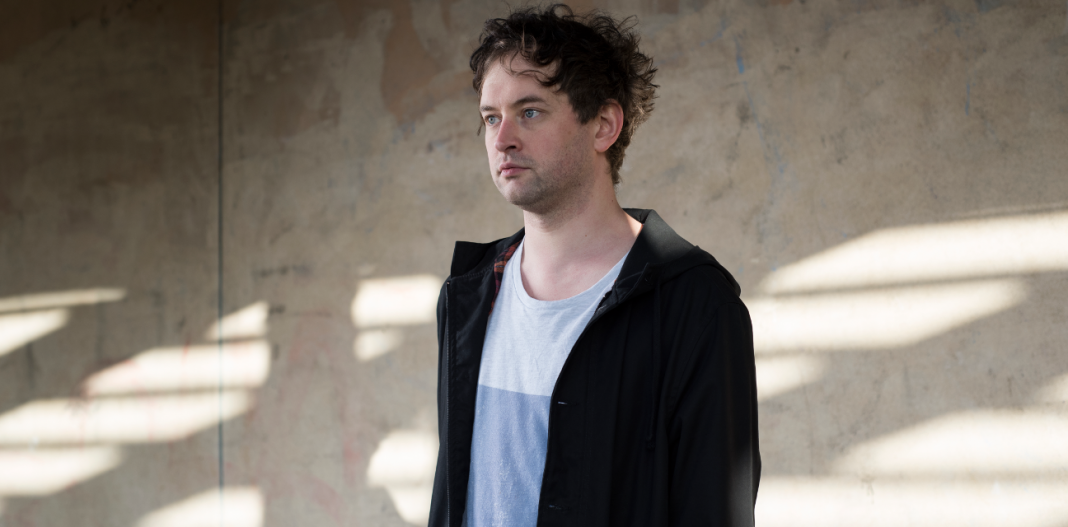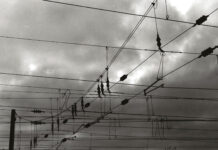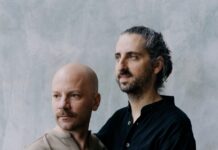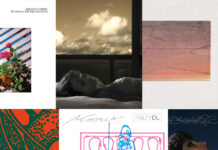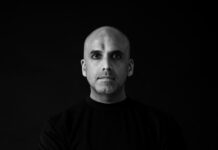All Photos: James de Ara (Nathan Fake)
Nathan Fake grew up in Norfolk, an idyllic county on the east-coast of Great Britain where most people dedicate their time to gardening rather than toying around with synthesizers. Except Fake, of course. He’d already began experiencing the possibilities of making music as a teenager and spent his money on the cheaper software and not on gear to spend his free time jamming. In the British countryside, his music making hobby made him an outsider – today, it’s his full-time job. In the early noughties, his first releases Outhouse and Drowning In A Sea Of Love paved his way as a promising newcomer. It was during that time that Fake gave techno a “breeze of swing”, as he puts it himself. His music has been influenced by elegiac as well as romantic sounds from the first day on. In doing so, it sounds rough but also soft.
On his current EP Sunder, Fake he again showcase his intuitive grasp for lush harmonies and melodies. A result of his production process being both very personal and even therapeutic. “Whether I’m in a bad or good mood: the musical output captures my conditions and emotions and can help”, he tells us. “Since I’ve always made music on my own, it’s a very personal and intimate thing. It’s one of the things where I can let my myself completely go and forget everything.“ On Sunder, not only the music itself functioned as a key to let go completely, but also the the hardware with which it was made. Having been recently released through Ninja Tune, Sunder was produced during a one-man-jam session. “I was just playing, I wasn’t sort of aiming for it. I just used it rather than arranging it, especially for the production. I only used what was right in front of me.” Like on the last album Providence Fake again let loose and applied his competences as an adventurous producer. We talked with him about the unique process behind Sunder, the bittersweet inspiration behind it and finding his way back to the dance floor.
Your upcoming release was recorded an old Marantz tape deck and a broken Akai drum machine. Do you prefer this kind of vintage sound?
Funnily, the drum machine is actually a new one, but it sounds rough and broken. Recording that on tape makes it sound even rougher. And so I was just playing, I wasn’t sort of aiming for it. I just used it rather than arranging it especially for the production. I hit record on the tape recorder and jammed and see how it goes.
Sounds like a natural and intuitive process.
Yeah, and I actually thought it might sound really bad, but then it sounded surprisingly cool and I felt very comfortable with the tunes. I like to have a mixture. I actually like digitals and 90s synths that sound not too clean and a bit crappy. (laughs)
Stream: Nathan Fake – Sunder
How long did the jam session or process of production for Sunder last?
It was really quick. The process basically took me as long as the tracks are. (laughs) I tried not to think about time. I just wanted to play keyboard and feel free during it. The whole EP took me two days or so to record.
This kind of emancipated habit sounds interesting considering the current status quo of musical production, where editing programs like Ableton go hand in hand with the creation. Your jam exemplifies a way opposed to that. It seems like it gives back the possibility to concentrate on your own subjectivity that can easily get subdued by programs.
It can be an endless process. It’s funny, because it’s kind of the opposite to a jamming process. On the other hand there’s so much stuff you can do with the possibilities of programs that I find positive. It’s just a huge world of possibilities. Some people save their productions for forever and never come to that point where they make the decision that it’s ready. So, it can be good to have something like a tape deck and be able to just record your stuff on tape and it’s done. The process of shaping is kind of redundant here, because you have to do it again, if you want to change or „amend“ something. (laughs)
The process sounds unique, since almost everyone today uses software to edit his or her music.
Yeah, it has become standard. When I started making music like 15 years ago Ableton was around, but there was less options. I also had friends that made music and we all did use very different things. There were lots of things on the market that were on the same level and no-one specialised in just one particular program. No-one used hardware as it was too expensive. It just seemed weird to have a studio when you just could use your laptop.
